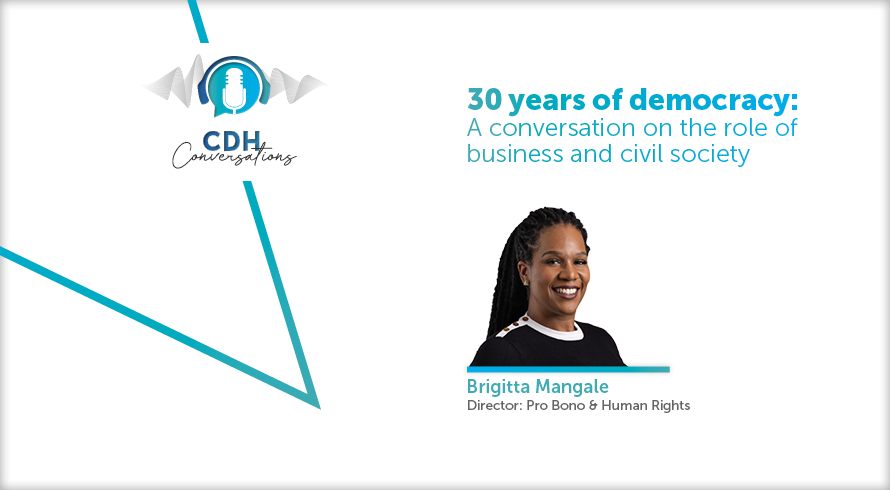Carbon tax – new legislation already changing but what about the regulations?
Despite the Act’s relative novelty, changes have already been proposed to it in the 2019 Draft Taxation Laws Amendment Bill (Draft TLAB), which was published on 21 July 2019. Subsequent to the publication of the Draft TLAB, the public was given an opportunity to make submissions on the Draft TLAB and public hearings on the Draft TLAB were held by National Treasury and SARS on 5 and 6 September 2019. Members of the public were also given an opportunity to make oral submissions to Parliament directly on Tuesday, 10 September 2019. We summarise the proposed changes below before briefly discussing the issue of certain regulations that are yet to be published.
Proposed Amendments
Some of the proposed amendments are as follows:
- In s1 of the Act, the phrase “person” is defined to include partnerships, trusts, certain municipal entities and certain public entities. It has been proposed to include a further paragraph (e) to clarify that any municipality that generates electricity, does fall within the ambit of the Act.
- Section 3 of the Act is essentially the charging provision of the Act and states that a person will be liable to pay carbon tax if it conducts an activity in South Africa resulting in GHG emissions above the relevant threshold stipulated in Schedule 2 to the Act. The Draft TLAB proposes that s3(b) be amended to clarify that the Act shall apply to any person conducting an activity in the Republic that results in GHG emissions equal to or above the emissions reporting thresholds in Schedule 2. This amendment has been proposed to ensure alignment with the Department of Environment, Forestry and Fisheries (DEFF) Technical Guidelines for the Mandatory GHG Reporting Regulation.
- The proposed amendment to s4 of the Act seeks to provide clarity on the different types of methodologies that can be used by a taxpayer in order to calculate the emissions of GHG.
The proposed amendment to s4(1) provides that taxpayers may use a company-specific emissions methodology or tier 3 methodology approved by the DEFF to calculate GHG emissions.
According to the clause-by-clause discussion in the Draft TLAB, if a company-specific emissions methodology has not been developed and approved by the DEFF, the proposed amendments to s4(2) aim to clarify that taxpayers will be required to use emission factors as defined in the 2006 Intergovernmental Panel on Climate Change (IPCC) Guideline or country specific emissions factors to determine their total GHG emissions.
Furthermore, in respect of s4(2) there have been several technical corrections proposed to some of the formulas. These include:
- A proposed correction of the formula for determining the emissions factor for energy emissions by converting the unit in which the GHG is expressed from kilograms to tonnes CO2e for each GHG by dividing by 1000. This is also consistent with the various examples regarding the calculation of the carbon tax that are provided in the Explanatory Memorandum to the Carbon Tax Bill, which was published in November 2018 (EM). No explanatory memorandum in respect of the Act has been published yet.
- The second proposed correction amendment is in respect of the emissions factor formula for fugitive emissions. The proposed correction is to provide for a conversion of the unit of the emissions factors for the different GHGs from volume to mass by multiplying by a density factor, where applicable, followed by multiplication by 1000 to convert to tonnes.
- The proposed amendment to s5 seeks to clarify the consumer price index which will inform annual adjustments to the rate of carbon tax. The rate has been proposed to be adjusted by the change in the CPI index over a 12-month period. Such period shall end in the November prior to the new tax period as published by Statistics South Africa. The latter proposed amendment was intended to provide transparency in the determination of the rate adjustment.
- It is proposed that s7 be amended to clarify that a basic tax-free allowance is provided for all activities as defined in Schedule 2 to the Act to ensure alignment with the design of the carbon tax where the level of the allowance ranges from 60% to 100% percent for specific activities. Furthermore, it is proposed that the allowance as provided for in s7 is changed from a basic tax-free allowance for fossil fuel combustion to a general basic tax-free allowance for all emission categories.
- Allowances provided for in s8(2) are proposed to be amended to align them with the design of the carbon tax which provides for a flat rate of 10% tax free allowance for fugitive emissions.
- A similar proposed amendment proposal is put forward for s9(2) where it is proposed that the allowance for process emissions be corrected to a flat rate 10% tax free allowance for fugitive emissions as provided for by the design of the carbon tax.
- Finally, in respect of s13 of the Act, which deals with the carbon offset allowance, the proposed amendment aims to clarify that the offset allowance provided for in this section is in fact a discretionary allowance.
The fact that none of these regulations have been published has caused much uncertainty amongst taxpayers who want to be able to budget and plan for their anticipated carbon tax liability for the 2019 tax year.
Regulations yet to be published
A taxpayer can reduce its carbon tax liability by making use of certain allowances provided for in the Act. Whereas the basic tax-free allowance provided for currently applies to virtually all taxpayers liable for carbon tax, the trade exposure allowance, performance allowance, carbon budget allowance and carbon offset allowance, will only apply to taxpayers that meet certain requirements, which will be contained in yet to be published regulations to the Act.
In the 2019 Budget Review, it was stated that the regulations pertaining to the trade exposure allowance would be published before the end of February 2019 and that the revised draft regulations on the carbon offsets, which were published in November 2018, would be finalised pursuant to a consultation workshop held in March 2019. The Budget Review further states that the benchmarking regulations, which would be used to determine whether an entity qualifies for the performance allowance provided for in s11 of the Act, would be published in March 2019 for further consultation.
None of the final regulations referred to in the 2019 Budget Review have been published as of yet, which means that unless they are published soon and apply retrospectively from 1 June 2019, taxpayers who are liable for carbon tax for the tax year ending 31 December 2019, will likely be unable to make use of any of the allowances that these regulations are supposed to deal with.
The fact that none of these regulations have been published has caused much uncertainty amongst taxpayers who want to be able to budget and plan for their anticipated carbon tax liability for the 2019 tax year. Hopefully, the final regulations regarding the trade exposure allowance, performance allowance and the carbon offset allowance will be published soon, and taxpayers will be allowed to make use of them to reduce their carbon tax liability for the 2019 tax year.
Response document
Following the recent public hearings on the Draft TLAB, National Treasury will release a response document in which they will indicate their response to the public submissions received, including any submissions regarding the proposed amendments to the Act. We will inform our readers of any developments in this regard.
The information and material published on this website is provided for general purposes only and does not constitute legal advice. We make every effort to ensure that the content is updated regularly and to offer the most current and accurate information. Please consult one of our lawyers on any specific legal problem or matter. We accept no responsibility for any loss or damage, whether direct or consequential, which may arise from reliance on the information contained in these pages. Please refer to our full terms and conditions. Copyright © 2025 Cliffe Dekker Hofmeyr. All rights reserved. For permission to reproduce an article or publication, please contact us cliffedekkerhofmeyr@cdhlegal.com.
Subscribe
We support our clients’ strategic and operational needs by offering innovative, integrated and high quality thought leadership. To stay up to date on the latest legal developments that may potentially impact your business, subscribe to our alerts, seminar and webinar invitations.
Subscribe



